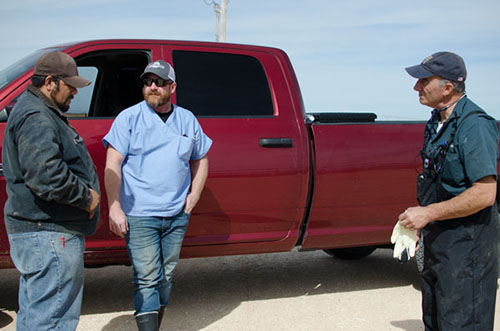
Growing up, my favorite farm meetings occurred around the breakfast table. Specifically, I remember chowing down on some bacon prepared by my grandfather while he and my dad drank coffee and planned the day. Food aside, there were some days when these meetings were productive, quick and to the point. Other days they would drag on and on.
As I got older, I witnessed these same trends in meetings I attended for clubs and group meetings in college. Sometimes people came prepared, we discussed pertinent information and we moved on. Sometimes I sat through frustratingly long conversations that had little to do with making decisions and executing plans.
It seems like meetings on the farm fall into one of two categories - a successful and meaningful conversation or a colossal waste of time.
Time management expert Peter Bregman suggests switching the mindset of your meetings. He recommends cutting your planned meeting time in half. In the case of the classic one hour-long meeting, cut it to a half hour meeting. The benefit? He says more will get accomplished and focus will be clearer. Furthermore, participants will be more likely to show up, be on time and be engaged knowing there will only be 30 minutes to get things done.
In the farming world, cutting farm-wide or advisory team meetings down to 30 minutes allows all involved to waste less daylight.
In order to achieve this efficiency, Bregman says there are three keys to making the 30-minute meeting work.
- Read what you need to beforehand and tell everyone else to do the same. For example, if you are planning to review mastitis treatment protocols, make sure everyone has been supplied with the current plans and efficacy data.
- Decide on the one thing that will make the biggest difference. Do your best to stay on task and address the original intention of the meeting.
- The sign of a great meeting isn't the meeting itself. Take time to assess the impact your meetings make. What happens after the meeting and how do you gauge success of the items that were discussed?

The author is an associate editor. She covers feeding, milk quality, youth activities and heads up the World Dairy Expo Supplement. Maggie was raised on a 150-cow dairy near Valley Center, Kansas, and graduated from Kansas State University with degrees in agricultural communications and animal sciences.